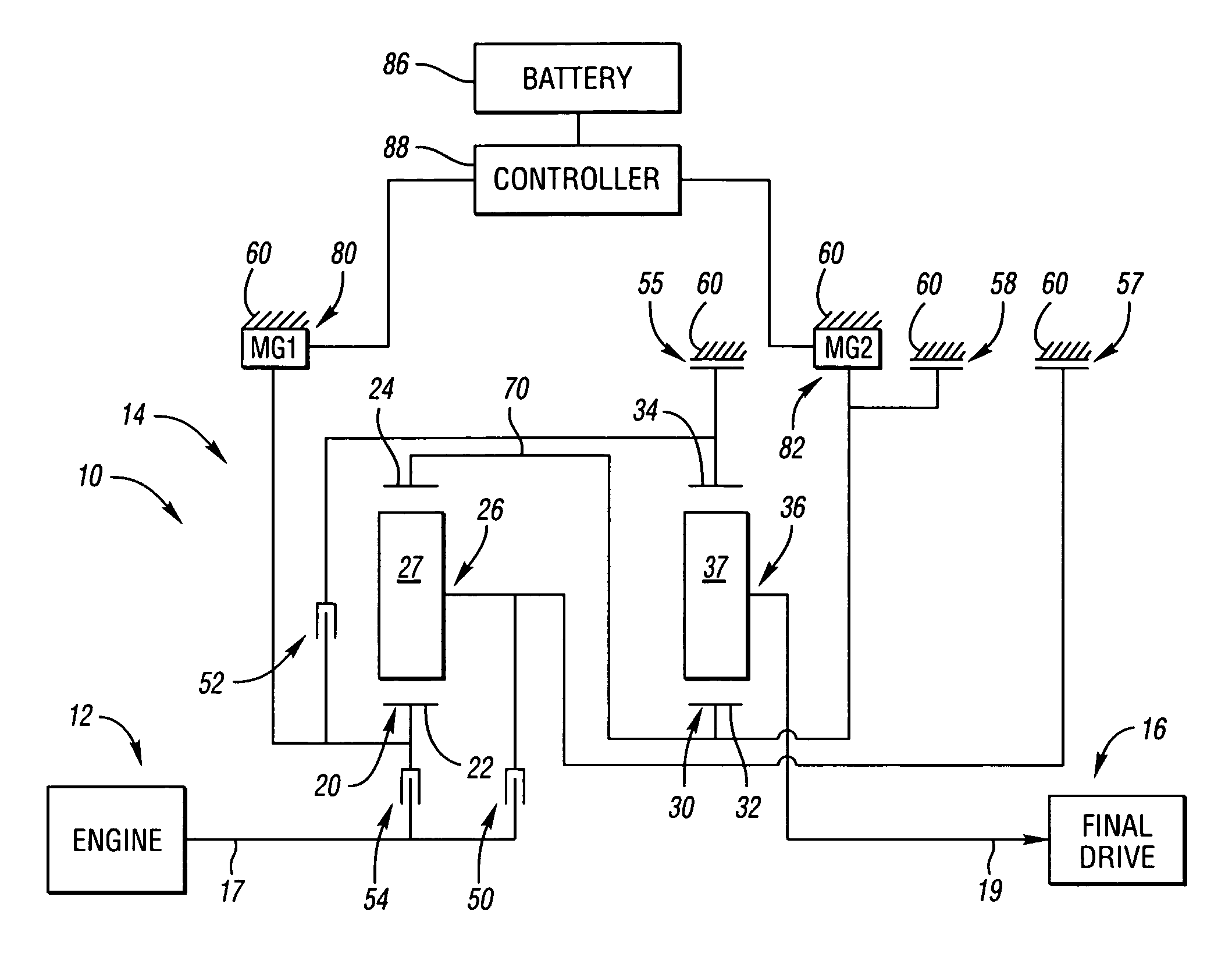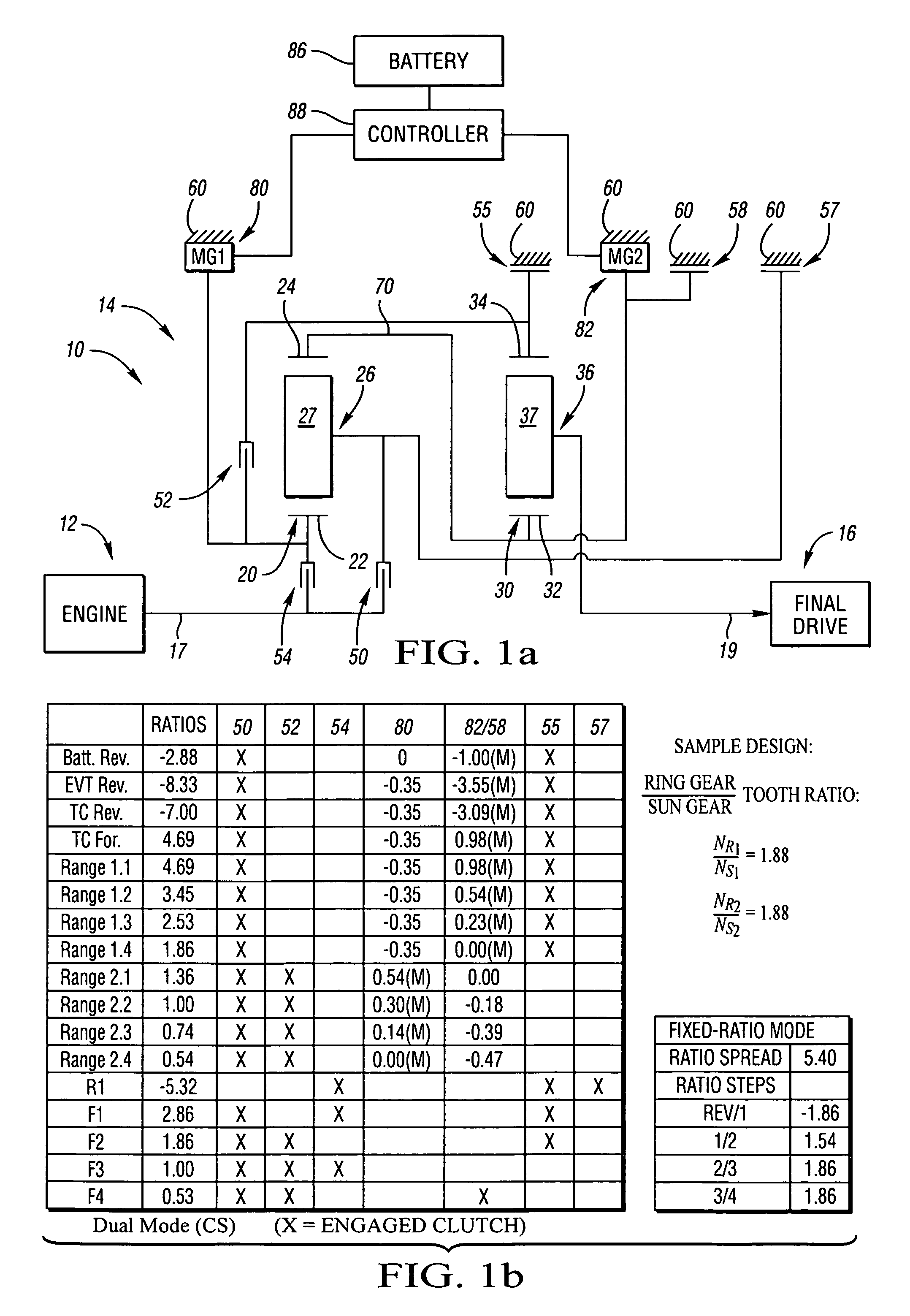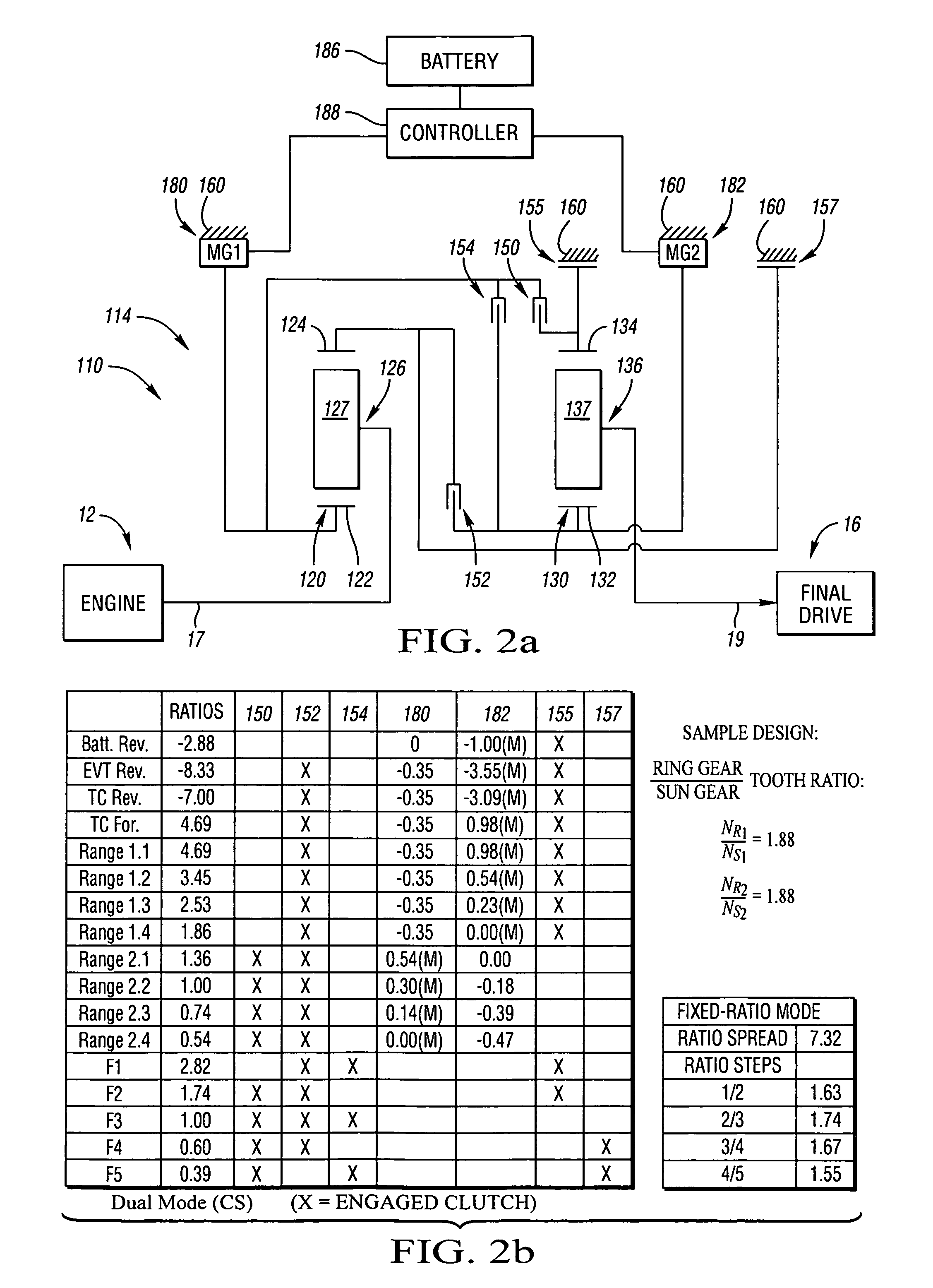Two-planetary electrically variable transmissions with multiple fixed ratios
a technology of electrically variable transmission and ratio, applied in the direction of electric propulsion mounting, electric gearmaking, transportation and packaging, etc., can solve the problems of increasing fuel consumption and emissions beyond the ideal case, reducing the service life of the series electric drive, and reducing the service life of the electric drive. , to achieve the effect of improving fuel economy, improving vehicle acceleration performance, and best possible energy efficiency and emissions
- Summary
- Abstract
- Description
- Claims
- Application Information
AI Technical Summary
Benefits of technology
Problems solved by technology
Method used
Image
Examples
second exemplary embodiment
Description of a Second Exemplary Embodiment
[0079]With reference to FIG. 2a, a powertrain 110 is shown, including an engine 12 connected to another embodiment of the improved electrically variable transmission, designated generally by the numeral 114. Transmission 114 is designed to receive at least a portion of its driving power from the engine 12.
[0080]In the embodiment depicted the engine 12 may also be a fossil fuel engine, such as a diesel engine which is readily adapted to provide its available power output typically delivered at a constant number of revolutions per minute (RPM). As shown, the engine 12 has an output shaft that serves as the input member 17 of the transmission 14. A transient torque damper (not shown) may also be implemented between the engine 12 and the input member 17 of the transmission.
[0081]Irrespective of the means by which the engine 12 is connected to the transmission input member 17, the transmission input member 17 is operatively connected to a plane...
third exemplary embodiment
Description of a Third Exemplary Embodiment
[0095]With reference to FIG. 3a, a powertrain 210 is shown, including an engine 12 connected to another embodiment of the improved electrically variable transmission, designated generally by the numeral 214. The transmission 214 is designed to receive at least a portion of its driving power from the engine 12. As shown, the engine 12 has an output shaft that serves as the input member 17 of the transmission 214. A transient torque damper (not shown) may also be implemented between the engine 12 and the input member 17 of the transmission 214.
[0096]Irrespective of the means by which the engine 12 is connected to the transmission input member 17, the transmission input member is operatively connected to a planetary gear set in the transmission 214. An output member 19 of the transmission 214 is connected to a final drive 16.
[0097]The transmission 214 utilizes two differential gear sets, preferably in the nature of planetary gear sets 220 and ...
fourth exemplary embodiment
Description of a Fourth Exemplary Embodiment
[0105]With reference to FIG. 4a, a powertrain 310 is shown, including an engine 12 connected to another embodiment of the improved electrically variable transmission, designated generally by the numeral 314. The transmission 314 is designed to receive at least a portion of its driving power from the engine 12.
[0106]As shown, the engine 12 has an output shaft that serves as the input member 17 of the transmission 314. A transient torque damper (not shown) may also be implemented between the engine 12 and the input member 17 of the transmission.
[0107]Irrespective of the means by which the engine 12 is connected to the transmission input member 17, the transmission input member 17 is operatively connected to a planetary gear set in the transmission 314. An output member 19 of the transmission 314 is connected to a final drive 16.
[0108]The transmission 314 utilizes two planetary gear sets 320 and 330. The planetary gear set 320 employs an oute...
PUM
 Login to View More
Login to View More Abstract
Description
Claims
Application Information
 Login to View More
Login to View More - R&D
- Intellectual Property
- Life Sciences
- Materials
- Tech Scout
- Unparalleled Data Quality
- Higher Quality Content
- 60% Fewer Hallucinations
Browse by: Latest US Patents, China's latest patents, Technical Efficacy Thesaurus, Application Domain, Technology Topic, Popular Technical Reports.
© 2025 PatSnap. All rights reserved.Legal|Privacy policy|Modern Slavery Act Transparency Statement|Sitemap|About US| Contact US: help@patsnap.com



